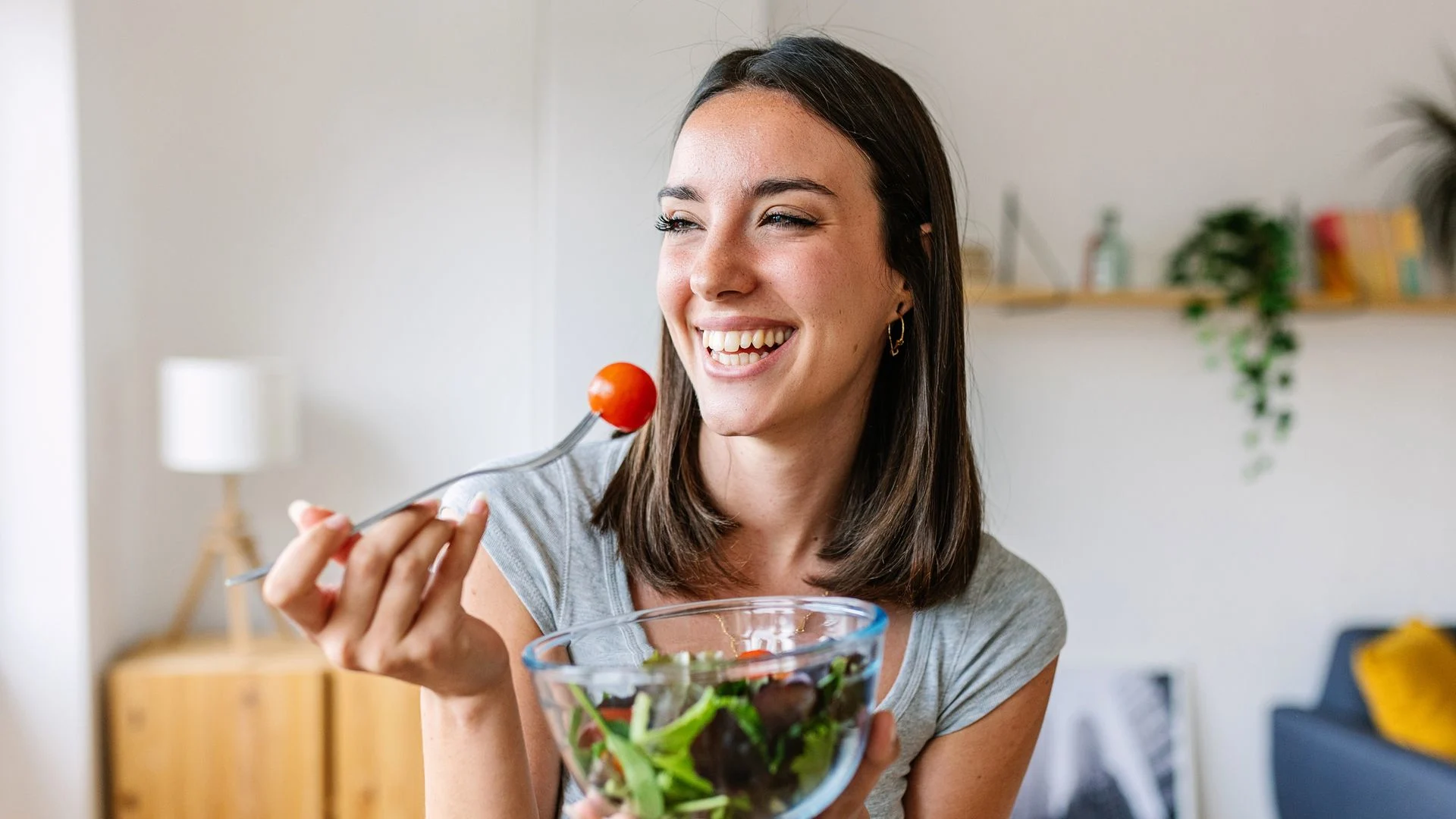By Faye James
Copyright hellomagazine

You’ve probably heard of Ozempic by now. The once-a-week injection first developed to treat type 2 diabetes is now a global headline-maker, thanks to its striking impact on appetite, cravings and body weight. From the red carpets of Hollywood to NHS clinics across the UK, this new class of medicines, known as GLP-1 receptor agonists, is rapidly changing the way we approach obesity. But while most people are aware of Ozempic’s effects on hunger and weight loss, there’s another, less expected shift taking place for many patients: the taste of food itself begins to change. For some, rich meals become less appealing, sweet treats lose their shine, and once-irresistible cravings simply melt away. So, is it real? And if so, why is it happening?
HELLO! spoke to leading medical experts and obesity specialists to uncover the science behind this fascinating side effect, and how to adapt if your palate starts playing tricks on you.
What Ozempic does in the body
Ozempic, which contains the active ingredient semaglutide, belongs to a family of medications known as GLP-1 receptor agonists. In Australia, it’s officially registered for the treatment of type 2 diabetes, but across the world, it’s gained huge traction for its ability to support weight loss by reducing appetite and regulating blood sugar.
So, how does it work? GLP-1 medications mimic a hormone the body naturally produces after eating. This hormone slows digestion, improves blood glucose control, and acts on the brain to reduce what’s known as “food noise” that relentless inner chatter that pulls us back to the fridge, even when we’re not hungry.
Dr Angela Kwong, a Sydney-based GP and obesity expert, explains: “Because the medication works at multiple levels, the gut, the brain, the hormonal system, the whole experience of eating can shift. I’ve seen patients who used to inhale an entire block of chocolate suddenly feel completely satisfied after one square. That’s not the goal in itself, but the sense of control it brings is deeply empowering.”
Can Ozempic change how food tastes?
Surprisingly, yes, food really can taste different while on GLP-1 medications like Ozempic. In a study by the Medical University of Vienna, more than one in five participants reported a change in taste after three months of treatment. Many said that foods tasted sweeter or saltier than usual, and some reported aversions to previously loved flavours. Interestingly, bitter and sour tastes appeared unaffected.
“For some people, these changes are subtle. They simply find rich or oily meals less appealing and start naturally gravitating towards lighter, fresher options,” says Dr Kwong. “Others find it quite profound, their favourite foods no longer spark joy, or they realise they’re no longer thinking about food all the time.”
Dr Alex Craven, a Melbourne-based upper gastrointestinal and bariatric surgeon, adds: “This isn’t entirely new. We’ve seen similar effects for decades in bariatric surgery patients. When the body’s weight-defence mechanisms are bypassed or suppressed, whether through surgery or medications like semaglutide or tirzepatide, it appears to trigger changes in how food is perceived and prioritised by the brain.”
These changes can range from mild shifts in food preference to more intense food aversions. For some, previously tempting treats may suddenly feel too rich, heavy or even unpleasant. Others may lose interest in food altogether, especially early in treatment or at higher doses. However, the majority of people experience only minor or short-lived alterations.
Why does it happen?
While scientists are still uncovering the full picture, several theories offer clues. Firstly, GLP-1 medications directly influence the brain’s reward and appetite pathways, particularly the hypothalamus, which is involved in weight regulation and food preferences.
“When weight is reduced through medical intervention, the hypothalamus seems to send new signals to areas of the brain that shape our likes and dislikes,” says Dr Craven. “That’s why these taste shifts are often more pronounced early on, and tend to settle once the patient’s weight stabilises.”
Other theories include the presence of GLP-1 receptors in taste buds themselves, which may alter how we process flavour, and the slowing of digestion, which can make foods feel heavier and affect how they’re perceived in the mouth.
“There’s also an attentional shift,” adds Dr Kwong. “With less ‘food noise’ in the background, people begin noticing the details of their meals differently. Texture, smell, temperature, even sound all play into taste, and GLP-1 medicines impact multiple layers of that experience.”
What should you do if food tastes different?
For most people, these taste changes are manageable, and even welcome. Many patients describe a newfound preference for vegetables, lean proteins and simpler meals, which aligns beautifully with nutritional best practice. But if food becomes unappetising or unbalanced, it’s important to act.
“First, don’t panic,” says Chris Hughes, an accredited practising dietitian. “It’s common for food preferences to change slightly as your hormones adjust. Lean into whole foods that feel good, and focus on nutrient-dense meals, even if your portion sizes are smaller.”
Fresh herbs and spices can help boost natural flavour without heaviness, while staying hydrated and eating slowly can improve enjoyment and reduce metallic or bitter aftertastes. And if you find certain foods unappealing, try not to force them, your taste buds may come around again soon.
Dr Kwong recommends a protein-first approach to support muscle mass and energy, especially while appetite is reduced. “I always encourage patients to listen to their body. If rich foods make you feel queasy or tired, that’s a sign to pivot, not push through. You can still enjoy eating, it just might take some creative tweaks.”
In rare cases where food aversions become severe or lead to malnutrition, the medication may need to be paused. It’s also important to distinguish between food aversion and disordered eating, especially in those with a history of restrictive behaviours. “Eating disorders are surprisingly common in people seeking weight loss support,” says Dr Craven.
So, does Ozempic change the taste of food? “For some, yes, especially in the early months of treatment, and particularly with higher doses or related medications like Wegovy and Mounjaro. Foods may taste sweeter, saltier or richer than before, and long-time favourites can lose their appeal,” says Dr Kwong. “These changes aren’t dangerous, and for many, they’re actually helpful, reducing cravings, encouraging healthier food choices and supporting long-term habit change.”
“But as with any medicine that impacts appetite, it’s important to eat mindfully, nourish your body well, and seek support if food becomes a source of distress. With the right balance of medication, nutrition and lifestyle guidance, most people adapt well, and continue to enjoy food in a way that feels satisfying,” she concludes.
Expert bios
Dr. Angela Kwong, MBBS DCH FRACGP is a Sydney-based GP and the NSW State Lead for the RACGP Specific Interests Group in Obesity Management. She is the Founder of Enlighten Me, an award-winning medically supervised weight management program and doctor designed meal replacement shake.
Chris Hughes, is an Accredited Practising Dietitian. He has worked as a clinical dietitian, founded and grown a large private practice, is author of The Tweaking Diet, and has developed MEALZEE, a meal-planning app used by health professionals across Australia and New Zealand.
Dr Alex Craven is a Melbourne-based Upper Gastrointestinal and Bariatric Surgeon. Internationally, he serves on the boards of ANZMOSS and NACOS, and contributes to global committees for IFSO, reflecting his commitment to advancing safe, equitable access to obesity treatment worldwide.



